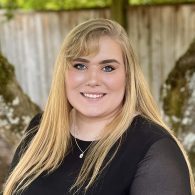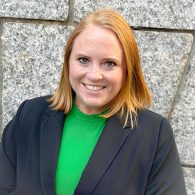Expanding law firm PR programs crucial to empowering diverse voices – Melissa Anderson and Catherine Oswalt Write for NYLJ
July 29, 2024
“Law firms should develop a spokesperson program that encourages organic involvement and reiterates the firm’s goal of exemplifying unique attorney perspectives,” write Catherine Oswalt and Melissa Anderson of Infinite Global.
New York Law Journal
By Catherine Oswalt and Melissa Anderson
Law firms occupy a unique space in societal evolution. Behind every contemporary issue in the news lies a lawyer—and a law firm. The question is: How can lawyers convey their expertise across industries and markets in an impactful, responsible and resonant way that transcends the noise?
Public relations. PR allows law firms to communicate their proficiencies meaningfully, breaking through the static to engage and inform their audience—a crucial element to enhancing the firm’s reputation and earning client trust, while attracting talent and prospects aligned with a firm’s values. Among those ideals should be diversity, equity and inclusion (DEI).
Diversity initiatives can be viewed with apprehension due to growing fears of repudiation following last year’s Supreme Court decision in Students for Fair Admissions v. Harvard—which ended racebased considerations in college admissions and has spurred lawsuits against major law firms. While some firms are scaling back DEI programs, it is crucial for diversity to maintain a strong
presence in law firm business development plans.
This goes beyond merely encouraging attorneys with diverse backgrounds to participate in client calls, internal organizations or practice group gatherings. It involves actively promoting and empowering minority perspectives to excel through media training, sourcing opportunities to engage with reporters, and increasing efforts to highlight the attorneys’ expertise and knowledge.
Leveraging PR can empower lawyers to share their insights, reinforcing their credibility and influence among current and prospective clients. Effectively using media relations and PR more broadly can uplift diverse voices during a time when it is so desperately needed.
Equitable PR Strategies and Empowering Diverse Voices in Law Firms
PR can be incredibly valuable, particularly for those whose voices have been historically underrepresented. Consistent media representation offers significant benefits, such as increased visibility and recognition of subject matter expertise. When individuals are regularly quoted in the media, they become trusted sources and recognized experts in their fields, underscoring the importance of fostering relationships with reporters.
Journalists value diverse perspectives and insights from multiple sources, enriching their coverage with varied viewpoints and expertise. By exclusively promoting legal sources from homogeneous backgrounds, a law firm limits the value of PR for the firm’s business model, handicapping the investment it’s made in its attorneys.
Therefore, firms must thoughtfully identify spokespeople—either through formal channels or on a volunteer basis—to build and maintain relationships with reporters. Identifying and training intersectional and inclusive voices can help firms utilize media relations to boost individual career growth and firmwide financial and employee wellbeing.
So how do law firms do this, and do this well? Let’s get into it.
The Crucial Role of Media Training in Professional Development and Representation
Media training can be one of the most useful tools in a law firm’s arsenal for public relations efforts. It’s cheap and effective, and the lack of training will be most obvious when a lead litigator or an up- and-coming associate on a high-profile case unintentionally makes a detrimental statement to the press.
Often, confidence plays a significant role in slip-ups. Many people experience nerves when speaking publicly, but practice usually remedies this fear. Speaking to reporters is an extension of public speaking; it requires composure, an understanding of what can and cannot be said, and awareness of how words impact the audience, who generally look to lawyers and subject matter
experts for guidance on contentious issues.
Don’t overlook the importance of preparation and confidence when speaking with the media. This readiness shouldn’t be limited to individuals on the partner track, but equitably encouraged, equally applied (and enforced, where necessary, by law firm leadership) across the ranks. Robust media training ensures everyone in the law firm understands the firm’s media policy: how to handle inquiries from reporters, unexpected emails, or unfamiliar calls. It should cover protocols for speaking on the record, off the record, and on background—and later delve into topics such as effective messaging, reputation strengthening, and when to engage with the media proactively or reactively.
Ensuring all attorneys undergo media training eliminates unnecessary barriers for diverse voices to speak on topics relevant to their practice and business development goals. This shows the law firm has confidence in its people, equipping them with skills that will encourage their professional development, and ultimately help to remove obstacles between them and a target audience that is increasingly looking for media representation that reflects their world.
Fostering Inclusive Spokesperson Development
Making the marketing, business development and PR teams known amongst your BIPOC, LGBTQ+ and women attorneys is of the utmost importance. All attorneys should know these teams are available resources and be encouraged to regularly consider what’s making headlines and what might be missing from media coverage in relation to their practice. Reporters love these insights into what they might be missing, and PR practitioners love it even more.
Opening this dialogue ensures alignment on strategic messaging and enhances the firm’s visibility in relevant discussions, which is different from the basic media training. This element of the PR program focuses on harnessing proactive firm spokespeople who can offer thought leadership on hot topics relevant to the firm’s regional and economic footprint, key practice areas and business of law initiatives.
Recognizing and promoting diverse rising stars within the firm is equally important to the longevity of a spokespeople program. By identifying promising attorneys and introducing them to the PR team, the firm can highlight their achievements and contributions.
To effectively do their jobs, PR professionals need access. Invite them to practice and affinity group meetings. Share significant pro bono work relating to multicultural initiatives. Introduce them to hiring and professional development committees. Access allows the communications team to explain their role in enhancing the visibility of the firm and individual lawyers, and show how collaboration benefits everyone.
Time is a precious commodity for attorneys, and they need to see the tangible value of engaging with marketing and PR efforts. Clear communication about the purpose and goals of these initiatives helps attorneys understand how strategic media engagement can magnify their experience and impact.
Allowing attorneys to self-identify as spokespeople based on their interests and strengths fosters genuine engagement and effectiveness in media interactions. Just because an attorney is a rock star litigator or groundbreaking dealmaker does not mean they want to or should have to engage with the media. You should never thrust a potential spokesperson into an outfacing role without careful consideration.
Law firms should develop a spokesperson program that encourages organic involvement and reiterates the firm’s goal of exemplifying unique attorney perspectives. Shortly after arriving at a firm regardless of their level of experience—attorneys should understand that the PR team is an important resource. This approach empowers individuals to grow into their roles naturally, rather than being assigned responsibilities arbitrarily. Those who excel in these roles can find it immensely rewarding, enhancing their professional development and the firm’s reputation as they become recognized voices in their respective industries and practices.
Remember, at the End of the Day, Lawyers Are Ultimately Here to Discuss Legal Issues
For PR to be most effective, leadership and affinity groups should push for diverse, equitable and focused development related to earned media. Law firm leadership needs to communicate how important it is for diversified voices to get these resources and make sure these initiatives are a priority.
This takes shape by making sure we are championing BIPOC, LGBTQ+ and women spokespeople. For example, by sending these individuals to conferences, we enable them to leverage their honed skills from media training and spokesperson development to effectively address audiences, enhance their visibility, and bolster their credentials. This also involves deservedly promoting historically underrepresented and disenfranchised personnel to leadership roles, where they can integrate ideas and perspectives unique to their backgrounds into the foundation of a law firm and,
by extension, its PR program.
However, we’d be remiss if we did not emphasize that leadership must remember minority voices are not limited to discussing DEI issues alone; ultimately, the firm’s focus should be on discussing legal matters. Championing representation should not confine individuals to roles or speaking engagements solely based on aspects of their identity. While it’s important to highlight women attorneys in March, Black leadership in February, and LGBTQ+ colleagues in June, DEI initiatives should be an everyday priority seamlessly integrated into any successful public relations program.
Catherine Oswalt is a senior account executive and Melissa Anderson is an associate vice president
with Infinite Global.
Reprinted with permission from the July 29, 2024 edition of the New York Law Journal © 2024
ALM Global Properties, LLC. All rights reserved. Further duplication without permission is
prohibited, contact 877-256-2472 or asset-and-logo-licensing@alm.com.
Read more like this

Walking the AI tightrope: Communicating innovation without undermining core values – Andrew Longstreth writes for NYLJ

ChatGPT, two years on – how is AI really transforming comms? – Tal Donahue writes for PRWeek

Infinite Global publishes 2023 Climate Change report

